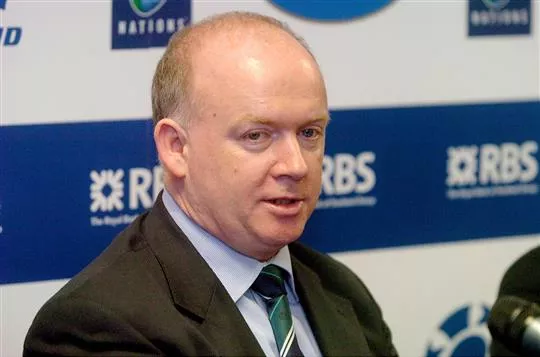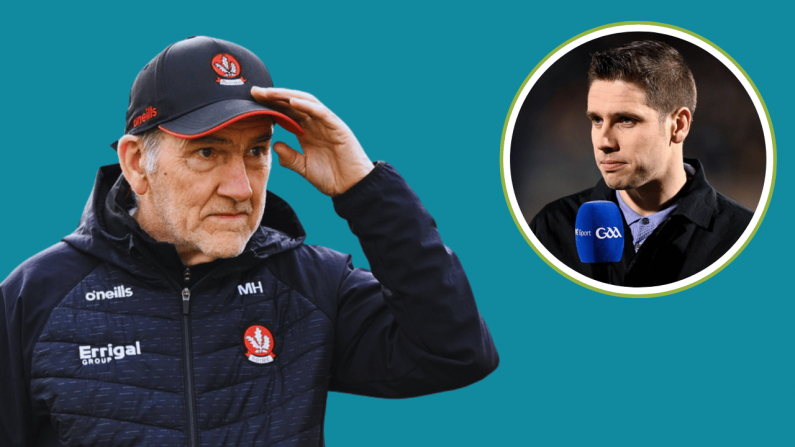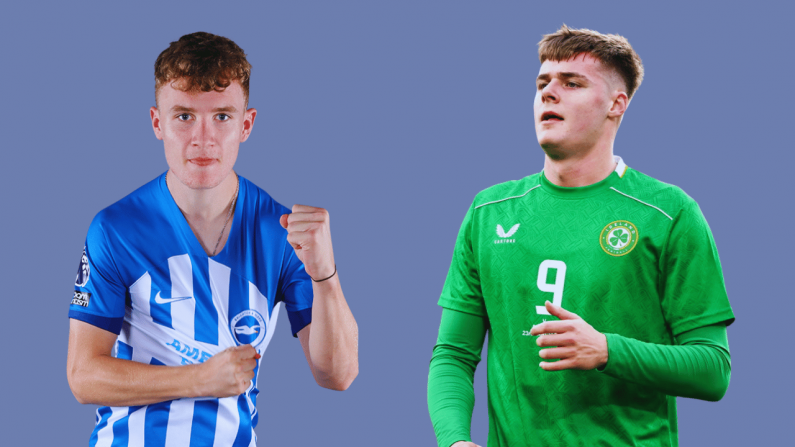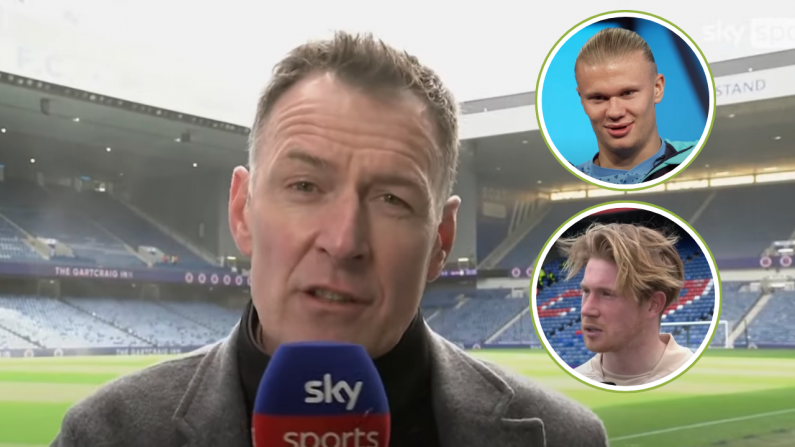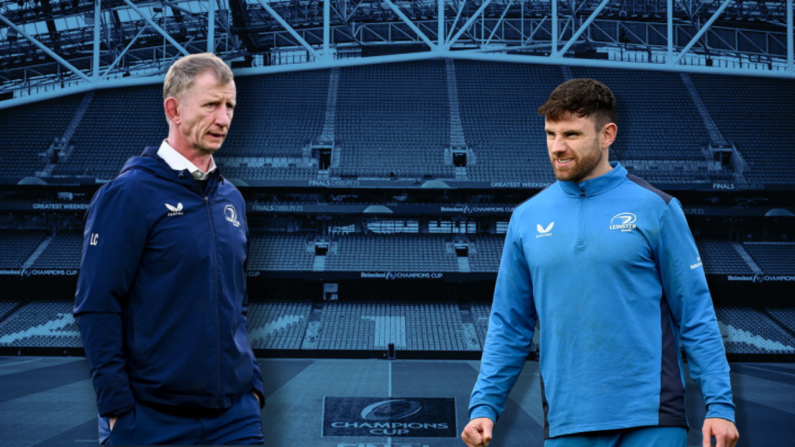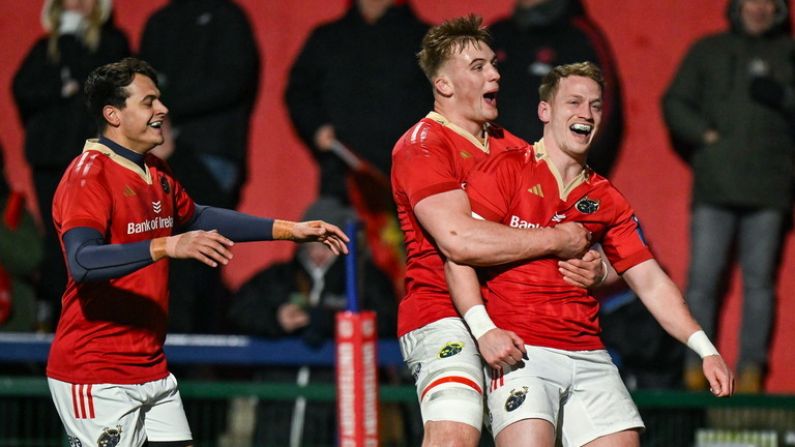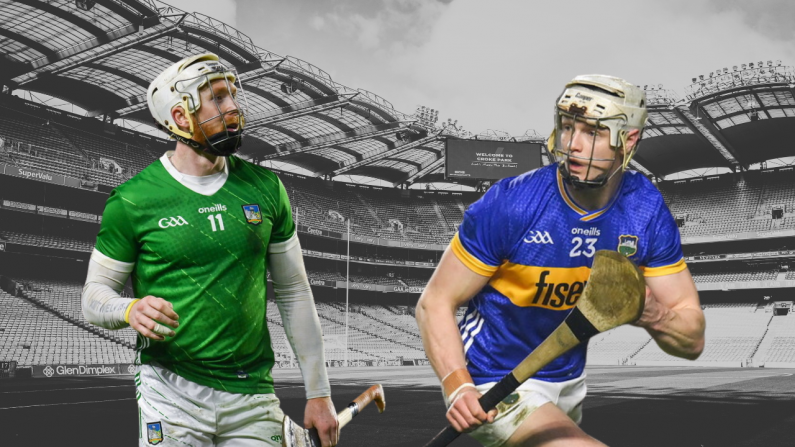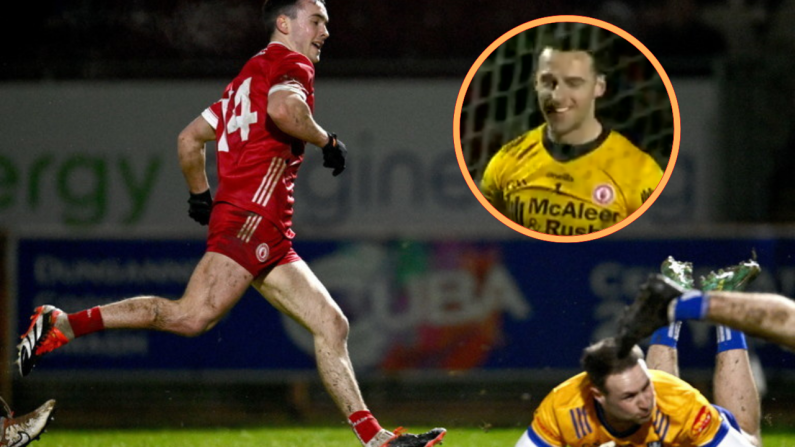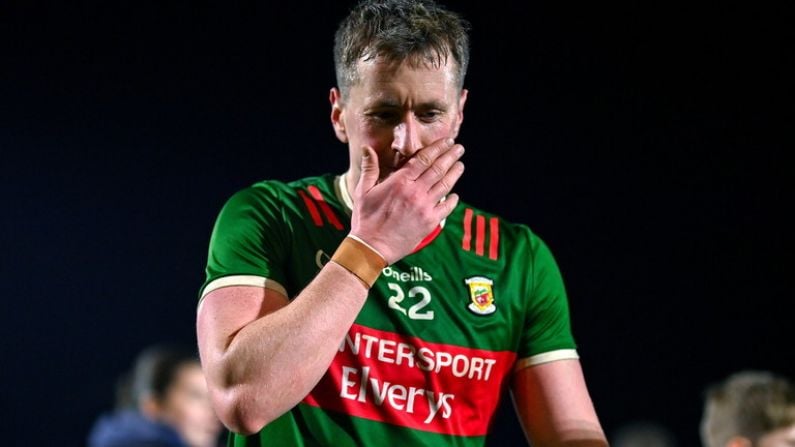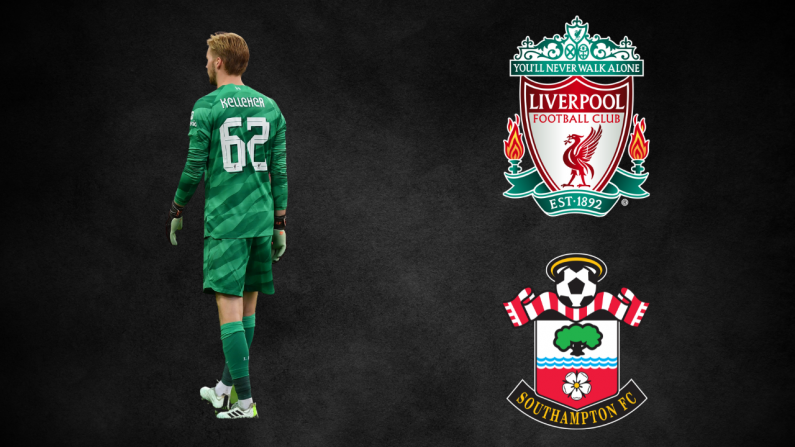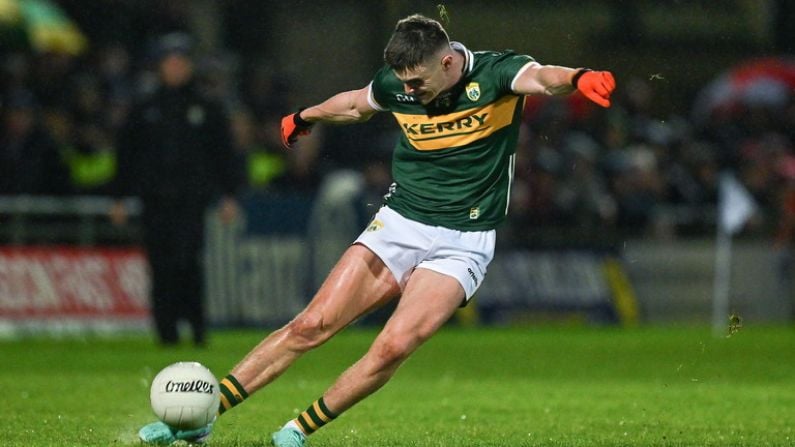With Cork Week now winding down, we turn our attention to the finest gaffers Cork has given to Irish sport, looking at rugby, soccer and the GAA.
Declan Kidney
Declan Kidney's reputation has plummeted since Joe Schmidt came into our lives. But Balls is confident that this is a short-term phenomenon.
To paraphrase a quote about another famous Corkman, we believe that in the fullness of time history will record the greatness of Declan Kidney.
A former Dolphin rugby player, Kidney, like approximately 80% of international rugby coaches in the professional era, formerly worked as a teacher in a rugby school. He taught Mathematics in Presentation College.
It feels a long time ago now but Declan Kidney was Philips Sports Manager of the Year three times in four years (2006, 2008, 2009). Two Heineken Cups with Munster and leading Ireland to their first Grand Slam in 61 years. How quickly its been forgotten in the Schmidt years of plenty. Schmidt hasn't even progressed further than Kidney in the Rugby World Cup.
Ireland suffered in Kidney's final two years in the role but the side were crippled with injuries, particularly in his final Six Nations in 2013. His reign ended on a down-note, with Ireland's first loss to Italy in sixteen years.
Leinster fans seemed especially impatient for his sacking from 2011 World Cup onwards.
Canon Michael O'Brien
The Canon read the riot act at half-time in the 1990 All-Ireland final. Cork were being led a merry dance by a Joe Cooney inspired Galway in the blazing sun. They trailed by seven and appeared to be in process of going down meekly.
In a surreal second half-spell, they plundered four goals in rapid quick time and, having been dismissed as 'donkeys' at the start of the year, Cork rustled up another All-Ireland victory. After the game, the likes of Tony Keady and Pete Finnerty were still struggling to comprehend how Galway had managed to lose.
RTE used to enjoy dressing room access in those days after All-Ireland finals. The Canon told Jim Carney afterwards.
It takes a team effort and I said a few things at half-time... we are playing with a 10-man team. Some of the lads had to realise we were in an All-Ireland final. I think they got the hang of it at half-time!
It was his second All-Ireland title as Cork manager and his first in solitary charge. Along with Justin McCarthy, he coached the 1984 team to win the All-Ireland in Thurles in centenary year.
His last bit of silverware with Cork was the 1993 National League title, won after a dramatic three-game saga against Wexford. The subsequent championship campaign was too short as Clare stunned the reigning provincial champions in the Munster semi-final.
Justin McCarthy
Ger Loughnane maintained that McCarthy was the best trainer he'd ever seen. He modelled his own sessions with Clare on the '90s on those of McCarthy.
That 'lunatic from Clare' (quote from Brian Cody) would have witnessed McCarthy's coaching genius first-hand as a player with Clare in the late 1970s. Clare won two national league titles in a row in 1977 and 78 but the drought in Munster was prolonged by Fr. Bertie Troy's great Cork three-in-a-row team. Unfortunate timing.
Clare lost two Munster finals narrowly and the moment passed. Soon Limerick picked up the baton. Despite enjoying a long and sometimes brilliant coaching career, McCarthy has only managed one team to an All-Ireland victory, and that was as co-manager with Canon Michael O'Brien.
In the noughties, he built upon the work of fellow Corkman Gerald McCarthy in Waterford. In 2002, he led Waterford to their first Munster title in 39 years. Two more provincial titles would follow later in the decade as he created a team of unforgettable artistry and skill. The less said about Limerick, the better.
A coach beloved of the purists.
Noel O'Mahony
Involved with four different Cork soccer teams as both a player and manager. His managerial career is associated with Cork City in the 1980s and 1990s.
In 1990-91, Cork made a serious charge at the League title, which climaxed with a winner takes all clash against Dundalk on the final game of the season. Both sides were level on points and the LOI authorities were slow getting to grips with goal difference so a draw would have produced a two-legged playoff for the title.
Tom McNulty, who had a knack for grabbing big goals, scored the winner on the 73rd minute, delivering the League title to Dundalk.
Cork shouldn't scoff at the early 90s resistance to consulting goal-difference. They wouldn't have won their League title in 1992-93 but for that.
Bohemians would have won their first title in 15 years had goal difference been a factor - a detail which Balls can confirm still irks Pat Fenlon. Bohs might have won it anyway but for a 1-0 loss in Oriel Park on the final day when a draw would have sufficed. Tom McNulty again scored the only goal.
Cork City won the three-way playoff against Shels and Bohemians. A 3-2 win against Shelbourne in the RDS brought the League title south.
Noel O'Mahony had led Cork City to the promised land.
Donal O'Grady
His name invariably pops up every time a managerial vacancy arises. Thus far, he's shown a disinclination to remain in a county job longer than two years. He appears to enjoy punditry work, thank you very much.
A Finbarr's player and a Cork full-back in the 70s and 80s. Past form suggests O'Grady will only take on an inter-county job after a strike. Following a disastrous 2002 season, O'Grady resurrected Cork in 2003 and 2004, leading them to a Munster title win in '03 and an All-Ireland title the following year.
Famed for tactical nous. This summer in the Evening Echo, Christy O'Connor wrote that O'Grady should be made 'Director of Hurling' in Cork. Some years ago, Sean Óg O'Hailpin said that O'Grady was the best manager he had ever played under.
Billy Morgan
Alex Ferguson thought he had to knock Liverpool off their 'fuckin' perch'. If anyone can talk about dislodging proud birds from their perches, it's Billy.
Suffered enough against Kerry in his playing career and thus one got the impression he thoroughly enjoyed stuffing them again and again between 1987 and 1995, save for a couple of years following the two-in-a-row.
Like Brian McEniff in Donegal, Morgan couldn't stay away from the Cork seniors. After managing Nemo Rangers to the club All-Ireland in 2003, Morgan was back as Cork boss.
It was a less propitious time to take on the role. As Keys to the Kingdom makes plain, he succeeded in getting on Jack O'Connor's tits during those years. In his second spell, Morgan led Cork to one Munster title in 2006 and an All-Ireland final appearance in 2007. He celebrated wildly at the end of their demolition of Meath in the 2007 semi-final. Unfortunately, the final was miserable.
At the end of 2015, the Irish Times reported that Morgan was linked to a return to the Cork job. It's far from implausible he could take the role again.
John Allen
Could have included Johnny Clifford, who managed Cork to the All-Ireland title in 1986, or Conor Counihan, who finally brought a fine generation of Cork footballers to an overdue All-Ireland in 2010.
But then Clifford's second spell in Cork was less than stellar and he only won one Munster title in a total of five years in charge. While Counihan's reign ended on a downbeat note.
John Allen, on the other hand, backed up his efforts with Cork in the mid-noughties by leading Limerick to their first Munster championship in seventeen years. Seems to have picked up a habit of following Donal O'Grady into jobs. We recommend that other teams in bother follow the 'O'Grady-Allen' plan.
Jimmy Barry Murphy
When Cork unexpectedly reached the All-Ireland final in 2013, the focus of all the hype and adoration from the fans was not any particular star player, but their darling manager.
The pre-match hype song that blared out from radio stations was 'Do the Jimmy Barry Murphy'.
Twice, JBM accepted the Cork job when the team were at a low ebb. In his first spell, he led them all the way back to the promised land of an All-Ireland title. In his second stint, he was thirty (arbitrarily tacked on) seconds away from doing the same.
By the mid-1990s, things could hardly have been worse. His first year in charge represented the absolute nadir. Cork were slaughtered by Limerick in the 1996 Munster championship, their first ever summer loss in Pairc Ui Chaoimh.
Within three years, he led an absurdly small team, by modern standards, to an All-Ireland title, beating Brian Cody's Kilkenny by a point in the final.
When he returned in 2012, an aged team were drifting away and there was no brilliant underage crop coming on stream. Still, he somehow brought an unheralded team to an All-Ireland final in 2013. The following year, he guided Cork to their first Munster title in eight years in the final game played in the old Pairc Ui Chaoimh.
Momentum drifted away from them after that but Cork's struggles since his departure have only shone a spotlight on the scale of his achievements.
Fr. Bertie Troy
A giant from the era when roughly half of inter-county managers were priests, Troy led the greatest Cork side of the television era. He racked up the titles at underage level first, winning four All-Ireland minor titles between 1966 and '71 and four All-Ireland U21 titles in a row between 1968 and 71. With that pedigree it was clear that Cork would thrive in the seventies. Troy led the seniors to the glorious three in a row from 1976-78.
John Horgan, the famous corner back on the three-in-a-row side, described his modus operandi.
I’ve never heard anyone say a bad word about him. He was a very quiet man but he’d still get his point across. He was great to size up a situation; you’d think he wouldn’t be taking any notice but he was very sharp, very quick as well to act on it and do what needed to be done.
I’d say he was a bit of a traditionalist in that he wouldn’t stand for any nonsense in the way hurling was played. He liked it direct, first time, the old Cork way. If you had a bad game he’d pull you aside, let you know, but he’d give you a good gee-up – ‘There’s always the next day,” that kind of thing. He was a gent.
Frank O'Farrell
Dubious, possibly, to include him among the best, but an interesting story that hasn't been told enough.
When Ireland played Iran in the Azadi Stadium in November 2001, the local crowd turned characteristically nasty when realisation dawned that they weren't going to the World Cup.
No expressions of gratitude towards the country which produced one of their most successful managers. It's a footnote in most biographies but Cork's Frank O'Farrell led Iran to the Asian Cup in 1976, the third and last time they've won it.
Modern fans will recognise him as that genial but peripheral figure from all those George Best documentaries. The one who failed to rein in his increasingly wayward star player. He was never painted as the worst ogre in those Best-centred programmes, mind. That was reserved for O'Farrell's successor Tommy Docherty, who Best accused of lying about him.
When poor David Moyes was crashing and burning at Old Trafford, a number of reporters gave Frank a buzz for his take. They figured he might be able to empathise with Moyesy's predicament, having replaced Matt Busby in 1971.
In fact, Louis Van Gaal is the more appropriate analogy. Busby had already quit in 1969 and was replaced by reserve team manager Wilf McGuinness. Man United slipped alarmingly down the table and, after eighteen months, McGuinness was sacked. Matt Busby simply re-took the job. After an indifferent 1970-71 season, Busby retired again.
Cork-born former Republic of Ireland player Frank O'Farrell had just led Leicester City to the Second Division title. Busby hand-picked O'Farrell to replace him. According to O'Farrell's wife, Busby told the couple that it would take him at least five years to sort out Manchester United.
All went swimmingly at the beginning. Manchester United got off to a rip-roaring start in 1971-72. They went 10-points clear at one stage.
By Christmas 1971, Manchester United were still top of the League. Things turned sour in the second half of the season when Bestie, in flying form up to that point, started going AWOL. They slumped to 8th in the League by the end of the season, the same position as the year before.
He was sacked the next year after a poor-ish start to the 1972-73 season, but his lot wasn't helped by Matt Busby's insistence on interfering.
He played professionally with West Ham and Preston between 1948 and 1961. A diligent 'wing-half' (full-back in modern parlance), he was a teammate of Tom Finney's for five seasons. Earned nine caps for the Republic of Ireland in the 1950s.
Read more: Roy Keane's Cobh Ramblers Career In Contemporary Press Cuttings And Stats


